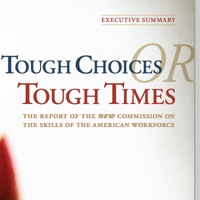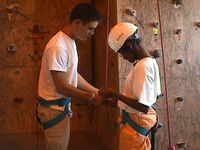New technologies have put students in charge of the information they access, store, analyze and share. To paraphrase David Warlick, “Literacy in the 21st century will mean the ability to find information, decode it, critically evaluate it, organize it into personal digital libraries and find meaningful ways to share it with others.”
Next week, I’ll be returning to Pottsgrove School District outside of Philadelphia to work with high school science, social studies and special education teachers on strategies for utilizing technology to incorporate more rigor and relevance into their classrooms. I’ll be joined by the Chris Shaffer, the principal of Pottsgrove High School. Together we’ll demonstrate strategies and technology resources and then give teachers time to work on integrating the strategies into upcoming lessons. Later in the school year we plan to reconvene the group to assess the impact on classroom instruction and student engagement.
Chris will be sharing a variety of websites that provide teachers and students with Web 2.0 tools to transform the learning environment. They include: www.Del.icio.us.com, www.Nettrekker.com, www.Unitedstreaming.com, www.Fantasycongress.com, www.Moodle.com. I believe that rigor and relevance improves when students have an opportunity to read, think, write and publish for an authentic audience and purpose. I’ll be showing the Pottsgrove audience three approaches that give students a chance to share their learning with others.
Judy Kinz, a very innovative technology specialist, has developed “Virtual Books,” a clever PowerPoint template that simulates the turning pages of a book. I used it to make demo PowerPoints for the Pottsgrove social studies and science teachers. Here’s a sample. Don’t focus on the content – it’s the look of the template that’s the point. homefront-virtual-book (1.9MB PPT) In partnership with a paper engineer, I’ll soon be launching FlipNLearn, an innovative learning foldable that student design and print on school printers using specialty paper. Presentation notes: Pottsgrove-10-08-07 (1 MB PDF)



